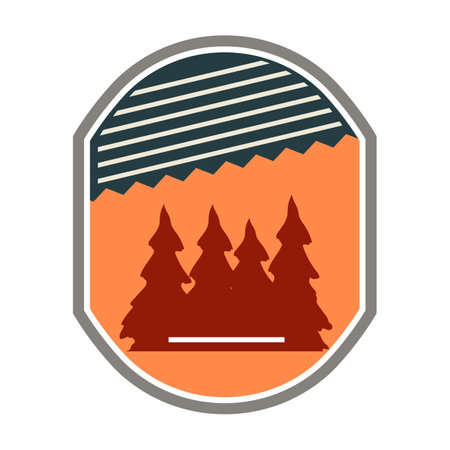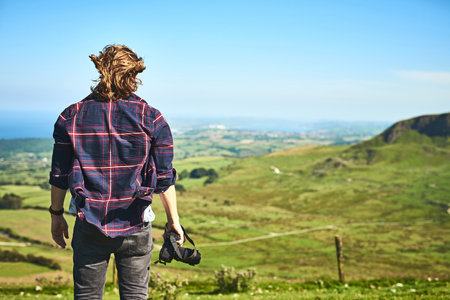Introduction to Wild Camping in the Brecon Beacons
Wild camping in the UK has always been a pursuit for those who crave true adventure and a raw connection with nature. Unlike pitching up at an organised campsite, wild camping means carrying everything you need on your back and bedding down away from civilisation. While the rules around wild camping are strict across England and Wales, the Brecon Beacons National Park offers a unique landscape that beckons seasoned hikers and outdoor enthusiasts alike. Nestled in South Wales, the park’s rugged mountains, sweeping moorlands, and hidden valleys provide an untamed backdrop for those looking to escape the ordinary. Here, it’s not just about finding a place to sleep; it’s about embracing unpredictability, respecting the land, and experiencing the wild heart of Britain. Whether you’re after solitude beneath star-studded skies or challenging yourself against unpredictable Welsh weather, wild camping in the Brecon Beacons is as close as you’ll get to genuine wilderness living in southern Britain.
2. Understanding the Legalities and Rules
Before pitching your tent in the Brecon Beacons, it’s crucial to get your head around the legal framework and local customs that govern wild camping in this part of Wales. Unlike Scotland, where wild camping is largely permitted under the right-to-roam laws, England and Wales operate under stricter rules. In the Brecon Beacons National Park, wild camping is not automatically allowed and is technically considered trespassing unless you have explicit permission from the landowner.
Legal Status of Wild Camping in Brecon Beacons
| Aspect | Details |
|---|---|
| General Permission | Wild camping is not generally permitted. You must seek landowner consent. |
| National Park Authority Land | The majority of land is privately owned; limited areas managed by authorities may offer more flexibility but still require permission. |
| Crow Act 2000 | This act grants open access for walking but does not include camping rights. |
| Enforcement | If caught without permission, you can be asked to move on at any time. Persistent offenders risk fines or prosecution for trespass. |
The Role of Landowners and Permissions
Your best bet for a legal wild camp is to approach landowners directly—farmers and estate managers are often accommodating if you ask politely, explain your intentions, and promise to leave no trace. Some smallholdings and campsites offer ‘wild’ pitches for a modest fee, giving you peace of mind while preserving the spirit of adventure. Always secure permission before setting up camp.
The Countryside Code: Essential Conduct for Campers
The Countryside Code is a cornerstone of responsible wild camping in Britain. It’s not just about staying out of trouble with the law—it’s about respecting the land, wildlife, and local people. Key points include:
- Leave No Trace: Take all rubbish home and avoid damaging vegetation.
- Keep Fires Off: Open fires are prohibited; use a camping stove instead.
- Stay Small Scale: Camp in small groups—large gatherings draw unwanted attention.
- Be Discreet: Set up late, leave early, and avoid sensitive locations such as farmland during lambing season or near water sources used by livestock.
- Respect Wildlife: Don’t disturb nesting birds or other animals.
- Close Gates: Always leave gates as you find them—open or closed—to prevent livestock escapes.
No-Nonsense Summary Table: Do’s & Don’ts for Wild Camping in Brecon Beacons
| Do’s | Don’ts |
|---|---|
| – Seek landowner permission – Follow the Countryside Code – Pack up at dawn – Use a stove instead of an open fire – Keep noise to a minimum – Choose discreet spots off main trails |
– Camp without permission – Leave litter or traces – Light open fires – Disturb wildlife or livestock – Block footpaths or access tracks – Gather in large groups |
Nail these basics and you’ll stay on the right side of both the law and local goodwill—a critical skill set for anyone serious about surviving (and thriving) on Britain’s wilder frontiers.

3. Choosing the Best Wild Camping Spots
If you’re serious about wild camping in the Brecon Beacons, picking your spot is just as important as knowing the rules. This rugged national park is crammed with secluded valleys, windswept ridges, and remote tarns that offer both challenge and reward. Here’s a breakdown of top local locations, complete with Welsh terms and what sets each area apart for the hard-bitten camper.
Pen y Fan and Corn Du
The highest point in southern Britain, Pen y Fan (pronounced “Pen uh Van”), is a magnet for hikers and wild campers alike. While overnighting on the summit itself isn’t advised due to exposure and crowds, nearby saddles and cwms (Welsh for “valleys”) like Cwm Llwch or Cwm Sere are prime territory. Here, you’ll find flat ground tucked out of the wind—just remember to set up late, leave early, and keep a low profile.
Black Mountain (Y Mynydd Du)
To the west lies Black Mountain, or Y Mynydd Du in Welsh—a remote expanse where solitude comes as standard. The Llyn y Fan Fach and Llyn y Fan Fawr lakes provide classic wild pitches beside glacial waters. It’s a proper test of your self-sufficiency; weather can turn savage in a heartbeat, so come prepared for sudden mist and boggy ground underfoot.
Fan Brycheiniog
This ridge forms part of the park’s western boundary and is less trodden than Pen y Fan’s busy paths. Wild camping near the summit or along the escarpment gives you epic sunrise views over Carmarthenshire. Locals call this area “the roof of South Wales”—not just for its height but also its exposure to every Atlantic squall. Always double-check your kit before heading up here.
Taf Fechan Valley
If you prefer lower altitudes and shelter from the elements, Taf Fechan Valley offers wooded banks and riverside pitches. Look for spots near Pontsticill Reservoir, but keep well away from footpaths and respect private farmland (use gates, not fences).
Local Wisdom: Leave No Trace
The phrase “tidy” in Welsh slang means more than neatness—it’s about respecting the land. Camp discreetly, pack out all rubbish (“litter” in British English), bury human waste well away from water sources, and never light open fires. Remember: if you’re doing it right, no one should know you were ever there.
4. Essential Kit for British Wild Camping
When wild camping in the Brecon Beacons, preparation is everything. The Welsh weather is notoriously fickle – you could wake to sunshine and finish the day under a relentless downpour. For the uninitiated, this isn’t just about comfort; it’s about survival and safety. Here’s a technical breakdown of the essential gear every seasoned UK camper relies on when braving the unpredictable elements and unique hazards of South Wales.
Weatherproof Shelter
A robust, double-skinned tent is non-negotiable. Choose one with a high hydrostatic head (minimum 3000mm) to withstand Welsh rain and strong winds. Avoid bright colours; opt for subdued tones like green or brown for low-impact wild camping, blending with the landscape and respecting local traditions.
Clothing: Layering for Survival
| Layer | Material | Purpose |
|---|---|---|
| Base Layer | Merino Wool/Synthetic | Moisture wicking, keeps skin dry |
| Mid Layer | Fleece/Insulated Jacket | Traps body heat, adds warmth |
| Outer Layer | Waterproof/Breathable Shell (Gore-Tex) | Protects from wind & rain |
| Trousers | Quick-dry/Water-resistant | Keeps legs dry on wet ground/heather |
| Socks & Boots | Wool socks & Sturdy boots | Reduces blisters, supports ankles on uneven terrain |
Navigational Tools: Don’t Rely on Mobiles Alone
The Beacons are notorious for poor phone signal. Always carry an Ordnance Survey map (Explorer OL12 or OL13) and a reliable compass. Seasoned campers often pack a GPS device as backup, but never let electronics replace traditional navigation skills.
Campsite Essentials: What Locals Swear By
- Bivvy Bag: For emergencies or stealthy overnighting if tents aren’t feasible.
- Lightweight Stove & Fuel: Open fires are forbidden; use a compact gas or alcohol stove for cooking.
- Headtorch: With spare batteries – Welsh nights are pitch-black, especially in fog.
- First Aid Kit: Include tick removers and blister plasters; ticks are increasingly common in long grass.
- Water Filtration: Streams can be contaminated by livestock – bring a filter or purification tablets.
- Litter Bags: “Leave No Trace” is gospel in the UK wild camping community – pack out everything you bring in.
- Trekking Poles: Helpful for boggy sections and river crossings common after heavy rain.
Quick Reference: Wild Camping Gear Checklist for the Brecon Beacons
| Category | Essential Items |
|---|---|
| Shelter & Sleep | Tent/Bivvy bag, Sleeping bag (rated to -5°C), Sleeping mat, Pillow/stuff sack with clothes |
| Cooking & Hydration | Stove & fuel, Lighter/matches, Cooking pot/spoon, Water filter/tablets, 2L water bottles/flasks |
| Sustenance & Safety | High-calorie food/snacks, First aid kit, Headtorch & spare batteries, Map & compass/GPS device, Knife/multi-tool, Emergency whistle |
| Clothing & Footwear | Layered clothing system (see above), Waterproof jacket & trousers, Hat/gloves/buff, Wool socks & sturdy boots/gaiters |
| Packing Out & Extras | Litter bags, Trekking poles, Dry sacks/liners for kit protection, Sun cream/insect repellent (for midges), Personal ID/ICE card |
Tough Lessons from Local Veterans:
The Brecon Beacons can throw every season at you in one trip. Respect the mountains – overpacking beats underpreparing every time. Invest in quality kit built for British weather; it pays off when conditions turn nasty. Lastly, always tell someone your planned route and expected return – mountain rescue teams are familiar with these hills but your preparation could save lives.
5. Staying Safe: Survival and Emergency Advice
If you’re wild camping in the Brecon Beacons, safety is your first line of defence against the unpredictable forces of nature. The weather can turn on a sixpence here—one moment it’s clear, the next you’re battling biting winds or relentless rain. Don’t gamble with the elements; always check the local forecast before setting out, and pack for worse than expected. A waterproof jacket, thermal layers, and spare socks are non-negotiable.
Weather Warnings: Be Prepared for Anything
The Beacons’ exposed hills can amplify cold snaps and sudden downpours. Pitch camp away from ridges and valley bottoms to avoid both high winds and flooding. Know your escape routes if conditions become dangerous—study your map and keep a compass handy; GPS signals don’t always play ball in remote Welsh landscapes.
Wildlife Encounters: Respect and Caution
While the Brecon Beacons aren’t teeming with dangerous animals, you’ll likely meet sheep, ponies, and perhaps a curious fox. Store food securely—rations left out will attract scavengers. Avoid disturbing nesting birds or livestock, especially during lambing season. If bitten or stung by insects, carry antihistamines and know basic first aid for allergic reactions.
Emergency Situations: Ready to React
Accidents happen—even to seasoned campers. Carry a robust first aid kit including bandages, antiseptic wipes, blister plasters, and painkillers. Share your route with someone back home, and agree on a check-in time. Mobile coverage is patchy at best; consider carrying a whistle (three blasts signals distress) or an emergency beacon.
Essential Survival Gear
- Map and compass (not just your phone)
- Head torch with spare batteries
- Water filter or purification tablets
- High-energy snacks and extra water
Local Mountain Rescue Advice
The Brecon Mountain Rescue Team recommends that all wild campers familiarise themselves with AdventureSmart UK’s guidelines. Know how to call 999 or 112 in an emergency and ask for ‘Police’ then ‘Mountain Rescue’ if needed.
Tough conditions demand tough preparation—plan meticulously, respect the land, and never underestimate the wild beauty of the Brecon Beacons.
6. Leave No Trace: Respecting the Land and Local Community
When wild camping in the Brecon Beacons, adhering to the Leave No Trace principle is not just a courtesy—its an absolute necessity. The rugged beauty of the Beacons is fragile, and our collective responsibility is to ensure it remains unspoilt for generations of hillwalkers, climbers, and campers to come.
British Best Practices for Minimising Your Impact
First off, always camp discreetly and away from busy footpaths or popular viewpoints. Choose durable ground—grassy patches rather than delicate peat bogs—and avoid pitching near water sources. Pack out every scrap of rubbish, including food waste, and give the area a thorough once-over before leaving. Remember, even biodegradable items like fruit peels can disrupt local wildlife and spoil the wild experience for others.
Respecting Fellow Outdoors Folk
The Brecon Beacons are shared by many: walkers, runners, farmers, and other wild campers. Keep noise to a minimum and respect early mornings and evenings when wildlife and fellow campers seek peace. If you encounter others seeking solitude, a friendly nod suffices—theres no need for lengthy chats unless invited. Above all, never reveal precise wild camping spots online; let others earn their own adventure.
Upholding the Wild Camping Ethos
The core of British wild camping culture is discretion and stewardship. Fires are generally discouraged as they scar the landscape; use a stove instead for brewing your morning cuppa. Avoid disturbing livestock or leaving gates open, as much of the land is working farmland. By sticking to small groups (ideally two or fewer tents) and moving on after one night, you ensure minimal impact and maintain goodwill with local communities.
Ultimately, leave your pitch as if youd never been there at all—a silent guardian of both landscape and tradition. This is how we preserve access to wild places like the Brecon Beacons while honouring both nature and neighbour.


